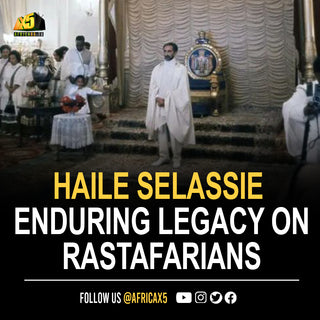Haile Selassie I, the former Emperor of Ethiopia, played a pivotal role in shaping the Rastafarian movement in Jamaica. His ideology, rooted in African nationalism, pan-Africanism, and Ethiopianism, resonated deeply with Jamaicans of African descent, who were seeking a sense of identity, purpose, and liberation from colonial oppression.
Haile Selassie's coronation in 1930 as the Emperor of Ethiopia, the only African nation to resist European colonization, sparked a wave of admiration and reverence among African diasporic communities. His leadership and vision for African unity, self-determination, and redemption inspired a generation of Jamaicans to embrace their African heritage and reject the oppressive systems of colonialism and racism.
The Rastafarian movement, which emerged in Jamaica in the 1930s, drew heavily from Haile Selassie's ideology, adopting him as a messianic figure and symbol of black liberation. Rastafarians saw Haile Selassie as a living embodiment of African sovereignty, wisdom, and spirituality, and his message of unity, justice, and equality resonated deeply with their own experiences of marginalization and oppression.
Haile Selassie's visit to Jamaica in 1966 further solidified his connection to the Rastafarian movement, as he was greeted by thousands of Rastafarians who saw him as a divine being. His message of love, unity, and redemption reinforced the core principles of Rastafarianism, which emphasizes the importance of African identity, social justice, and spiritual growth.
Today, Haile Selassie's legacy continues to inspire Rastafarians and people of African descent around the world, serving as a powerful symbol of black pride, self-determination, and resistance against systemic oppression. His ideology remains a testament to the enduring power of African culture, spirituality, and resilience, and his impact on the Rastafarian movement in Jamaica will forever be remembered as a pivotal moment in the struggle for black liberation and self-empowerment.



